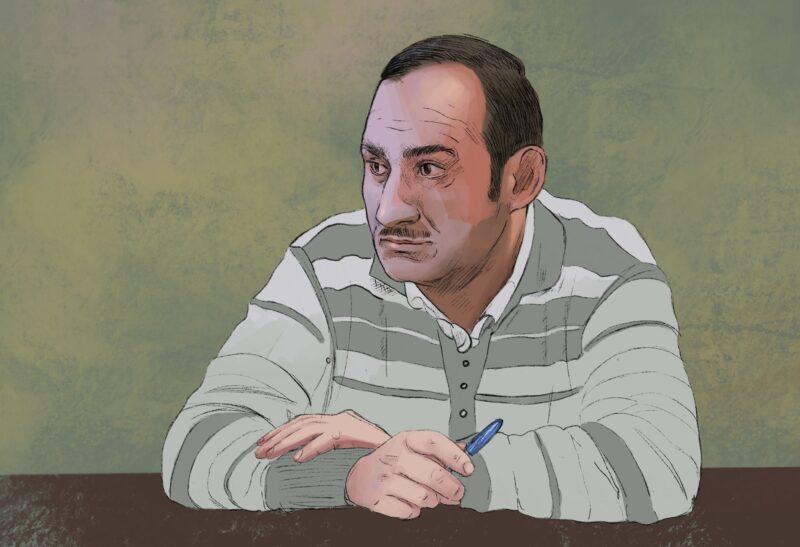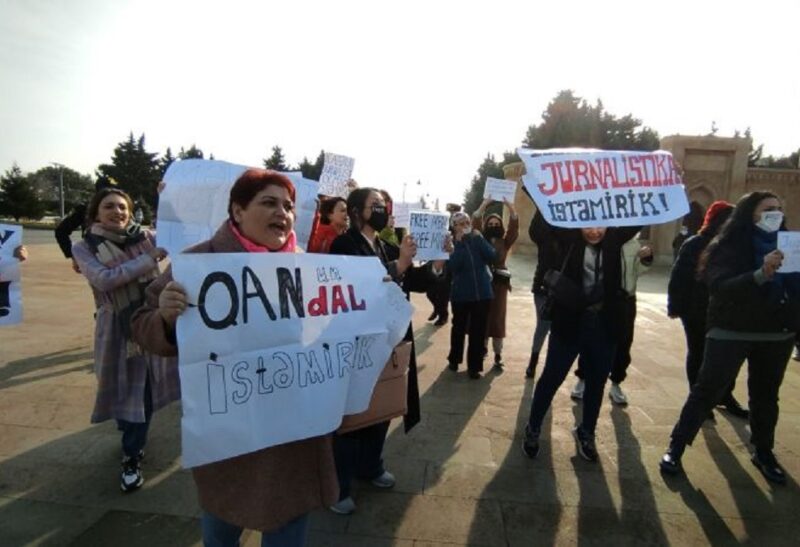

In a sign of simmering tensions over Nagorno-Karabakh, the Armenian-controlled enclave that is recognized as legally part of Azerbaijan, Baku has harshly criticized James Warlick, the US co-chair of the Minsk Group tasked with international mediation between the parties. Warlick’s sin was to share his ideas on the conflict resolution on twitter. Especially his suggestion that there is a risk of escalation in the conflict between Armenia and Azerbaijan has drawn Baku’s ire.
High-level Azerbaijani officials accused him of being ‘pro-Armenian’ and demanded his resignation. Meanwhile, Azerbaijani authorities arrested the journalist Rauf Mirgadirov and detained Leyla Yunus and her husband Arif Yunus, well-known Azerbaijani civil society figures who engage in dialogue with their Armenian counterparts. All this is happening against the backdrop of a bellicose rhetoric of the president Ilham Aliyev claiming Armenia to be a part of the ‘historically Azerbaijani lands.’
Taken together, these events confirm what already was on the minds of many: that the Azerbaijani government is not serious about pursuing a long-term peace with Armenia. In fact, this should surprise no one: the existence of an external enemy allows the regime to divert attention from its abuses, corruption and violations of human and civil rights.
But would democratization of Azerbaijan be more conducive to a peaceful resolution of the conflict? While the idea, promoted by some pro-democracy activists, seems attractive, it would be wise to remember that good things do not always come together. Azerbaijani opposition has never had to articulate its strategy on Nagorno-Karabakh beyond the general notion that the enclave must be returned to Azerbaijani fold. This is so because in the authoritarian context the opposition is more preoccupied with ensuring its organizational survival rather than developing policies. This context also shields it from the necessity to develop these policies, since there is no credible chance of it ever coming to power.
The advent of democracy would change that. To be successful, the parties will have to appeal to the electorate. And considering the level of animosity towards the Armenians existing in the society, when it comes to Nagorno-Karabakh democratic politics may well boil down to nationalist overbidding from political parties. Each party will have to prove its nationalist credentials by appearing tough on this issue.
Recently, Erkin Gadirli a leading member of the supposedly “modern, pro-Western” opposition Republican Alternative party, has provided a glimpse of what it might look like. He called on facebook for an assassination of the Armenian officials involved in ethnic cleansing of Azeris in the village of Khojaly in Nagorno-Karabakh. He later boasted that this call has earned him hundreds of likes on the facebook, thus rendering the objecting views of liberals and Westerners irrelevant. Sadly, as American scholar Bruce Bueno de Mesquita put it, bad behaviour is almost always good politics.
The tragedy is that there was nothing unavoidable about such a state of affairs. Azerbaijani public opinion, understandably, despises those who committed ethnic cleansing against Azeri civil population in places like Khojaly, a village in Nagorno Karabakh, and would like to see them brought to justice. But in recent years there has been a not so subtle, state-sponsored shift to hatred against anything Armenian.
Witness the hero welcome provided to Ramil Safarov, an Azerbaijani officer found guilty of murdering his Armenian counterpart at NATO-organised language courses in Hungary, or a violent smear campaign against the writer Akram Aylisli who dared to depart from a standard depiction of the Armenian-Azeri conflict in one of his novels. Given its total control of the media, the regime could have forged a more nuanced understanding of the conflict and prepared the ground for future peaceful co-existence between the Armenians and Azeris. It did the exact opposite. The result is a progressive dehumanization of Armenians in the Azerbaijani public opinion. As generations with an experience of co-existence with Armenians recede, and contacts between the two societies replaced by crude propaganda, it is politicians like Gadirli, and not pro-peace liberals, who are likely to reap the benefits of a democratic transition, at least initially.
So, the regime’s poisonous legacy is likely to outlive its own existence. This represents a serious risk for the stability and peace in the region.
Eldar Mamedov has degrees from the University of Latvia and the Diplomatic School in Madrid, Spain. He has worked in the Ministry of Foreign Affairs of Latvia and as a diplomat in Latvian embassies in Washington D.C. and Madrid. Since 2007, Mamedov has served as a political adviser for the social-democrats in the Foreign Affairs Committee of the European Parliament (EP).
The views expressed in this article are the author’s own and do not necessarily reflect Meydan TV’s editorial policy.



